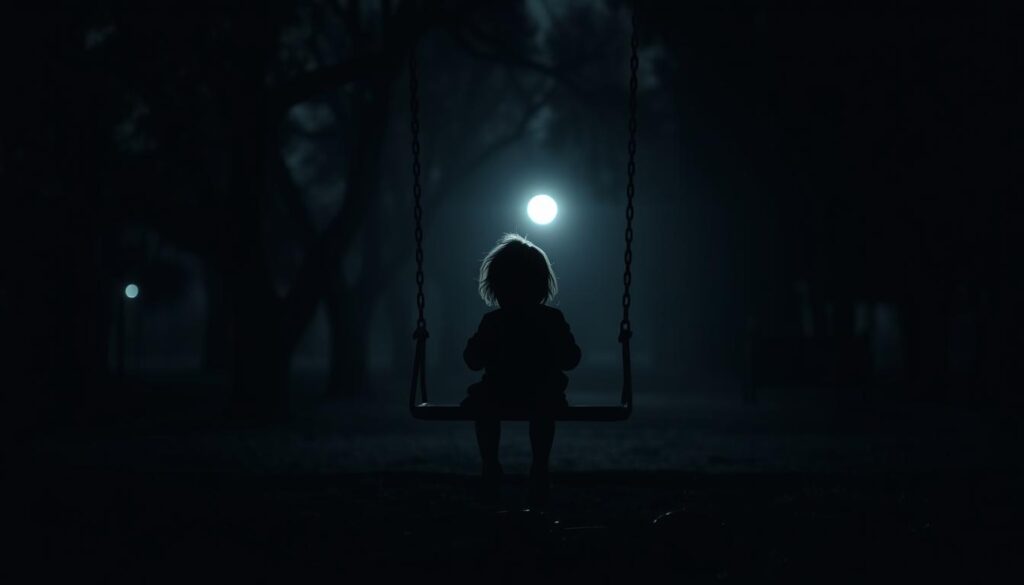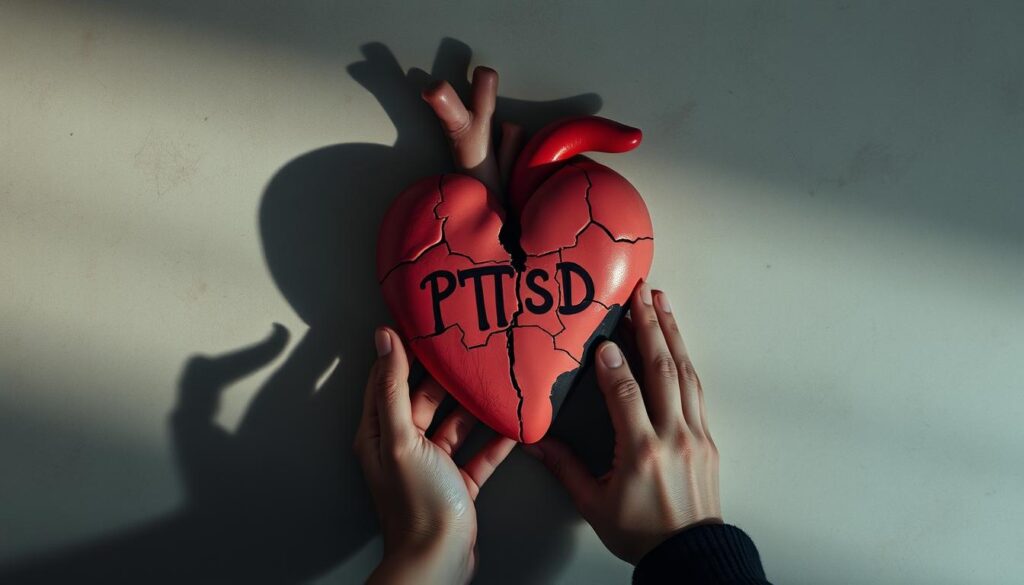As I sit with my clients, I’m often struck by how past traumas shape their lives, especially in intimate relationships. These wounds, from childhood, past relationships, or other significant events, leave deep scars. These scars affect how we connect and trust others. Research shows trauma significantly hampers our ability to form healthy, fulfilling bonds with loved ones.
The emotional baggage of past trauma weighs heavily, coloring every interaction and instilling fear of vulnerability. Attachment styles become distorted, with some clinging too tightly and others building walls. Trauma bonding leads to unhealthy emotional connections with abusers, causing self-sabotage and intimacy issues. PTSD symptoms like hypervigilance and emotional numbness also undermine trust and communication in relationships.
Yet, there’s hope amidst the pain. Understanding the roots of our relational struggles allows us to grow and heal. Through intentional personal growth, honest communication, and a commitment to healing, we can reclaim our power. We can then forge the healthy, fulfilling connections we deeply desire.
Key Takeaways
- Trauma can profoundly impact our ability to form and maintain healthy relationships.
- The emotional baggage of past trauma can lead to attachment issues, intimacy problems, and self-sabotaging behaviors.
- Understanding the roots of our relational struggles is the first step towards breaking free from the hold of past trauma.
- Intentional personal growth, honest communication, and a commitment to healing are essential for reclaiming our power and building the relationships we deserve.
- By addressing the impact of past trauma, we can cultivate the self-awareness and resilience needed to forge stronger, more fulfilling connections.
Understanding Trauma’s Influence on Relationships
Trauma, whether from past relationships or other life experiences, deeply affects our ability to form and maintain healthy connections. When we’ve been hurt, betrayed, or deeply wounded, we naturally build emotional barriers for self-protection. Yet, these barriers can block our capacity for intimacy and trust, sabotaging our current and future relationships.
Defining Relationship Trauma
Relationship trauma includes a broad spectrum of experiences, from emotional abuse and neglect to betrayal and abandonment. These traumatic events can cause deep attachment issues, trust issues, and a fear of vulnerability and intimacy. The scars from past traumas can resurface in our current relationships, showing as emotional withdrawal, hypervigilance, and avoidance of intimacy.
Signs Your Trauma is Impacting Your Relationship
Identifying how past trauma affects your current relationships is crucial for healing and growth. Common signs include:
- Difficulty trusting your partner
- Feeling emotionally distant or detached
- Hypervigilance and a constant need to be on guard
- Avoiding physical and emotional intimacy
- Reactivity and overreacting to perceived slights or rejections
By acknowledging these patterns and their origins, you can start to heal from relationship trauma. This allows you to build healthier, more fulfilling connections.
“The greatest weapon against stress is our ability to choose one thought over another.” – William James
Emotional Responses to Trauma
Trauma profoundly affects an individual’s emotional well-being. Survivors often face emotional dysregulation, marked by intense emotions like anger, anxiety, sadness, and shame. This emotional turmoil is especially prevalent when trauma occurs during childhood, a critical period for emotional development.
Emotional Dysregulation
Those who have experienced trauma may find themselves overwhelmed by their emotions. They struggle to manage these feelings, leading to outbursts, mood swings, and emotional instability. In an attempt to regain control, some turn to substance abuse or engage in risky behaviors.
Numbing and Dissociation
Trauma can cause emotional numbing and dissociation as a defense mechanism. Dissociation involves detaching from thoughts, behaviors, and memories, creating a sense of disconnection. This emotional numbness can hinder forming meaningful connections and engaging in emotional regulation.
Understanding emotional responses to trauma is key to developing effective coping strategies and healing. By addressing these emotional challenges, individuals can regain control and find a path forward.
| Emotional Response | Description | Potential Impact |
|---|---|---|
| Emotional Dysregulation | Difficulty controlling intense emotions like anger, anxiety, sadness, and shame | Outbursts, mood swings, self-medication, and risky behaviors |
| Numbing and Dissociation | Emotional detachment and a sense of disconnection from oneself and the world | Difficulty forming meaningful connections and engaging in emotional regulation |
“The greatest weapon against stress is our ability to choose one thought over another.” – William James
Physical and Cognitive Reactions
Trauma profoundly affects an individual’s physical and cognitive responses, often leading to heightened states of hyperarousal and hypervigilance. These reactions are the body’s protective mechanism against perceived threats, even when there’s no real danger.
Hyperarousal, a common trauma response, keeps the nervous system in a constant state of high alert. This can manifest through physical symptoms like increased heart rate, muscle tension, and difficulty sleeping. Individuals in this state may startle easily and find it challenging to relax. This can significantly impact their ability to connect with their partner and engage in healthy interactions.
Alongside the physical responses, trauma can also trigger cognitive reactions, where the mind is constantly scanning for potential threats. This heightened state of hypervigilance can make it difficult for individuals to focus on the present moment. It leads to a sense of being on edge and a perceived lack of safety, even in safe environments.
| Physical Reactions to Trauma | Cognitive Reactions to Trauma |
|---|---|
|
|
Recognizing and understanding these physical and cognitive reactions to trauma is crucial for individuals working to build healthy, trusting relationships. By being aware of these responses and finding ways to manage them, individuals can create a more stable and supportive environment for their relationships to thrive.
“Trauma can have a lasting impact on an individual’s physical and mental well-being, often manifesting in heightened states of arousal and vigilance. Understanding these responses is the first step in learning to manage them and cultivate healthier relationships.”
The impact of past trauma on current relationships
Relationships can be tough, and past trauma makes them even harder. People who’ve faced trauma often find it hard to be emotionally close. They might avoid certain activities or topics, doubt their partner, and feel disconnected. This emotional distance can be a big challenge.
Trauma deeply affects how we see and engage in relationships. It can lead to fear, mistrust, and a sense of not being safe. These feelings can block the way to forming and keeping healthy, loving connections. The effects of past trauma on relationships can show up in many ways, including:
- Difficulty with emotional intimacy: Survivors might struggle to share their feelings or be open. This can lead to feeling emotionally distant from their partners.
- Avoidance of certain activities or topics: People might steer clear of things that remind them of their trauma. This can limit how deep and rich their relationships can be.
- Negative beliefs about one’s partner: Trauma can color how we see our partners. It can make us doubt their good intentions, straining our bond.
- Emotional distance and disconnection: Trauma can make us feel disconnected from our partners. It’s hard to feel truly understood and supported.
Seeing how past trauma affects our relationships is the first step to healing. By tackling these issues and getting support, we can overcome our trauma. This way, we can build the strong, loving relationships we deserve.
| Relationship Challenges | Potential Impact of Past Trauma |
|---|---|
| Emotional Intimacy | Difficulty expressing feelings, fear of vulnerability |
| Avoidance of Activities | Limiting engagement in certain areas due to triggers |
| Negative Beliefs | Distrust, doubts about partner’s intentions |
| Emotional Distance | Sense of disconnection and lack of understanding |
“The impact of past trauma can create a profound sense of disconnection, but with compassion and support, individuals can heal and build the relationships they deserve.”
Behavioral Manifestations of Trauma
Trauma profoundly affects an individual’s behavior, leading to various manifestations that strain relationships. A common response is avoidance behaviors, where people steer clear of situations that remind them of their trauma. This self-protective mechanism can create distance, making it hard to maintain a healthy relationship.
Withdrawal behaviors are also prevalent. Individuals may pull away emotionally and physically, showing disinterest in intimacy and becoming detached. These self-protective behaviors stem from a desire to shield themselves from further harm. However, they can erode trust and connection in the relationship.
Avoidance and Withdrawal
Avoidance and withdrawal often go hand in hand. Individuals seek to distance themselves from perceived threats or reminders of their trauma. This can be seen in several ways, such as:
- Avoiding certain topics or activities that evoke distressing memories
- Withdrawing from physical and emotional intimacy with their partner
- Becoming disinterested in shared hobbies or social engagements
- Experiencing heightened startle responses or irritability when faced with triggers
- Developing negative beliefs about their partner or the relationship
Thesetrauma responsescan lead to feelings of isolation and disconnection. It makes navigating the relationship challenging. Yet, byunderstanding the impact of past traumaand seeking support, individuals can manage these behaviors. This fosters more open and resilient relationships.
Social Impacts of Trauma
Trauma profoundly affects not just an individual’s well-being but also their social interactions. Survivors often struggle to form and maintain healthy relationships. This struggle can worsen their current relationship issues.
One common effect of trauma is social withdrawal. Those who have experienced trauma may shy away from social interactions. They prefer to isolate themselves, avoiding social situations. This can result in social isolation, where they feel disconnected from their support network. They find it hard to trust and connect with others.
Trauma also hampers an individual’s ability to navigate interpersonal relationships. Survivors may face challenges like emotional regulation, communication breakdowns, and trust issues. These issues make it hard to build and maintain meaningful relationships with family, friends, and romantic partners.
| Social Impacts of Trauma | Manifestations |
|---|---|
| Social Withdrawal | Preference for isolation, avoidance of social situations |
| Social Isolation | Feeling disconnected from support networks, difficulty trusting and connecting with others |
| Interpersonal Relationship Challenges | Emotional dysregulation, communication breakdowns, trust issues |
It’s vital to understand the social impacts of trauma to support individuals in their healing journey. By addressing the trauma and developing coping strategies, survivors can rebuild their social connections. They can reclaim their sense of belonging.
Developmental Considerations
The timing and nature of traumatic experiences can profoundly impact an individual’s relationships. Childhood trauma, a critical period of development, can shape an individual’s attachment styles, emotional regulation, and ability to form healthy interpersonal relationships later in life.
Childhood Trauma
Trauma experienced during childhood can have lasting effects on an individual’s developmental impacts and attachment issues. Children who face childhood trauma may struggle to form secure attachments. This can lead to difficulties in navigating interpersonal relationships as they grow older.
- Disruptions in emotional development can make it challenging for individuals to regulate their feelings. This leads to emotional dysregulation and interpersonal challenges.
- Childhood trauma can also contribute to dissociation and a sense of disconnection from one’s own experiences. This further complicates the ability to form meaningful connections with others.
Recognizing the influence of childhood trauma and its developmental impacts is crucial. It helps us understand the root causes of relationship difficulties. It also aids in developing effective strategies for healing and growth.

“The wounds of childhood can profoundly shape our adult relationships if left unhealed. By addressing the impacts of early trauma, we can cultivate the self-awareness and resilience needed to build healthier, more fulfilling connections.”
| Childhood Trauma Impact | Developmental Consequences |
|---|---|
| Disrupted emotional development | Emotional dysregulation, difficulty with interpersonal relationships |
| Attachment issues | Challenges in forming secure relationships and healthy attachments |
| Dissociation | Sense of disconnection from one’s own experiences, further complicating interpersonal relationships |
Recognizing Resilience
While trauma can significantly affect relationships, it’s crucial to acknowledge that not all survivors face long-term relationship issues. Many resilient individuals have developed effective coping strategies. They navigate their relationships despite the challenges from their traumatic experiences.
Post-traumatic growth shows the human ability to grow stronger, improve relationships, and appreciate life more after adversity. Recognizing and nurturing this resilience helps individuals manage trauma’s impact. It fosters healthy, fulfilling relationships.
Signs of resilience in the face of trauma include:
- The ability to regulate emotions and maintain emotional balance
- Developing healthy coping mechanisms, such as seeking support or engaging in self-care activities
- A willingness to confront and work through relationship challenges
- A newfound sense of purpose or meaning in life
- The capacity to build and maintain strong, supportive relationships
By recognizing and celebrating these resilient qualities, individuals empower themselves and their partners. They navigate trauma’s challenges and foster post-traumatic growth in their relationships.
| Coping Strategy | Description | Potential Impact on Relationships |
|---|---|---|
| Mindfulness and Meditation | Practices that promote present-moment awareness and emotional regulation | Improved communication, increased empathy, and better conflict resolution |
| Seeking Professional Support | Engaging with therapists, counselors, or support groups to process trauma and develop healthy coping mechanisms | Strengthened self-awareness, communication skills, and ability to build trust in relationships |
| Cultivating a Support Network | Surrounding oneself with a network of family, friends, and community members who provide emotional and practical support | Improved social connections, increased feelings of safety and belonging, and enhanced relationship skills |
“Resilience is not about bouncing back, but about bouncing forward – growing, learning, and thriving in the face of adversity.”
Trauma and Co-occurring Disorders
Experiencing trauma profoundly affects an individual’s mental health, often resulting in co-occurring disorders. Posttraumatic Stress Disorder (PTSD) is a significant condition linked to trauma. It’s characterized by symptoms that hinder forming and maintaining healthy relationships.
Posttraumatic Stress Disorder (PTSD)
PTSD develops after a traumatic event. Those with PTSD face intrusive thoughts, flashbacks, and nightmares. They may avoid situations that remind them of the trauma. Hyperarousal makes them feel constantly on edge and easily startled.
These symptoms impact relationships deeply. They struggle with trust, expressing emotions, and intimacy. Avoidance behaviors lead to social withdrawal and isolation, straining connections further.
| Symptom | Impact on Relationships |
|---|---|
| Intrusive Thoughts and Flashbacks | Distracted, difficulty being present in the moment |
| Avoidance Behaviors | Withdrawal, difficulty sharing feelings and experiences |
| Hyperarousal | Irritability, difficulty regulating emotions, and tension in interactions |
Understanding trauma, PTSD, and their effects on relationships is key. Acknowledging PTSD and seeking support is crucial. This helps individuals heal and build stronger, more resilient relationships.

Cultural Perspectives on Trauma
The perception and understanding of trauma are deeply influenced by cultural factors. Different cultures hold various beliefs and attitudes towards mental health. These beliefs significantly affect how individuals from those backgrounds seek help and express their trauma experiences.
In some cultures, mental health stigma is strong, making it hard for those affected to discuss their struggles openly. This stigma can worsen the isolation and distress of those dealing with traumatic events.
Moreover, the way trauma-related symptoms are expressed varies across cultures. What is seen as a normal response to trauma in one culture may be viewed differently in another. This diversity in cultural norms influences an individual’s understanding and approach to their trauma.
The cultural influences on trauma also affect the treatment and healing process. Some cultures prefer holistic, community-based mental health approaches, while others favor individualistic, Western-based models. Understanding these cultural differences is key to providing effective, culturally-sensitive support for those with trauma and PTSD.
“Trauma is not just an individual experience; it is also deeply rooted in cultural and societal dynamics. Understanding these cultural nuances is essential for addressing the complex challenges faced by individuals and communities impacted by traumatic events.”
By recognizing and respecting the diverse cultural influences on mental health and trauma, we can build more inclusive support systems. These systems empower individuals to heal and thrive, regardless of their cultural background.
Healing Relationships through Communication
Effective communication is crucial when past trauma affects relationships. By sharing your story with your partner, practicing active listening, and using empathetic “I” statements, you can foster honesty, understanding, and safety. This approach helps rebuild trust and strengthen your bond.
Being open and vulnerable is a powerful step toward recovery. Acknowledging your emotional needs and setting clear boundaries fosters honest dialogue and mutual respect. This journey allows you to heal past wounds and fortify your relationship.
Fostering Honesty and Understanding
Rebuilding trust after trauma demands a commitment to honesty and mutual understanding. This involves:
- Actively listening to your partner’s experiences and perspectives without judgment
- Expressing your own feelings and needs using “I” statements to avoid blame
- Acknowledging and respecting each other’s boundaries and personal limits
- Cultivating empathy and trying to understand your partner’s emotional landscape
By embracing this approach, you can heal the relationship. You create a foundation of communication and vulnerability. This allows both of you to grow and thrive together.

“The greatest weapon against stress is our ability to choose one thought over another.” – William James
| Relationship Challenges | Communicative Solutions |
|---|---|
| Difficulty expressing emotions | Practice using “I” statements, engage in active listening |
| Lack of trust and understanding | Foster honesty, empathy, and respect for boundaries |
| Avoidance of difficult conversations | Approach challenges with openness and vulnerability |
Seeking Professional Support
When you’re ready to start healing, seeking support from licensed professionals is crucial. They specialize in trauma-informed care and relationship counseling. These experts offer personalized guidance and evidence-based interventions. They help you and your partner navigate trauma’s complexities and strengthen your relationships.
Trauma-informed therapists understand the challenges of processing past traumas. They know how these traumas impact your current relationships. They use a holistic, trauma-informed approach to address emotional, physical, and cognitive reactions. This creates a safe space for healing.
Relationship counselors focus on the complexities of your connections. They help identify communication patterns and develop strategies for trust, intimacy, and understanding. With a professional support system combining trauma-informed care and relationship counseling, you can unlock your relationships’ full potential. This paves the way for a fulfilling and resilient future.
“Seeking professional support is not a sign of weakness, but rather a courageous step towards reclaiming your power and creating the relationships you deserve.”
Your well-being and the health of your relationships are worth investing in. By finding the right therapy and professional support for your needs, you start a transformative journey. This journey leads to personal growth, deeper connections, and a more fulfilling life.
Whether facing a specific traumatic event or long-term childhood trauma effects, professionals’ guidance is invaluable. Don’t hesitate to reach out. Take the first step towards healing and strengthening the relationships that matter most to you.
Conclusion
The impact of past trauma on current relationships is complex, needing a multifaceted approach. Understanding the emotional, physical, cognitive, and behavioral responses to trauma is crucial. Being aware of how your past affects your present is the first step towards healing and building better relationships.
The path ahead may be challenging, but resilience, open communication, and a commitment to growth can help. Seeking professional support is invaluable, offering guidance and tools to navigate your journey.
Remember, trauma’s impact is complex, but with the right mindset and resources, you can reclaim your power. With each step, you become stronger, more resilient, and better equipped to create the life and connections you desire.
FAQ
How can past trauma impact current relationships?
Past trauma deeply influences our interactions with others. It can stem from childhood, past relationships, or other significant events. These experiences leave emotional scars that shape our behavior and perceptions in close relationships. This often results in trust issues, emotional barriers, and a sense of disconnection.
What are some common signs that past trauma is affecting a relationship?
Identifying signs of past trauma in your relationship is crucial. Look out for trust issues, emotional withdrawal, and hypervigilance. Trauma survivors might also struggle with emotional regulation, feeling numb, and experiencing physical and cognitive symptoms like hyperarousal.
How can trauma impact an individual’s behavior and social connections within a relationship?
Trauma can manifest in avoidance and withdrawal behaviors. Individuals might steer clear of activities or conversations that trigger memories of their past. They may also pull back emotionally and physically from their partner as a protective measure. This can severely impact their ability to form and maintain healthy relationships, leading to social isolation and trust issues.
Why is it important to consider the timing and nature of traumatic experiences when understanding their impact on relationships?
The timing and nature of traumatic events are critical in understanding their effects on relationships. Trauma during childhood, a formative period, can deeply influence attachment styles, emotional regulation, and interpersonal connections later in life.
How can co-occurring mental health conditions, like PTSD, further impact relationships affected by past trauma?
Co-occurring mental health conditions, such as PTSD, can significantly complicate relationships affected by past trauma. These conditions often include intrusive thoughts, avoidance behaviors, and hyperarousal, making it challenging to form and maintain healthy connections.
How can cultural factors influence the perception and understanding of trauma and its impact on relationships?
Cultural factors greatly influence how trauma is perceived and understood. Different cultures have varying beliefs about mental health, affecting how individuals seek help and express their trauma. This can also impact how they navigate the effects of trauma on their relationships.
What strategies can help heal relationships affected by past trauma?
Effective communication is essential in healing relationships affected by trauma. Sharing your story, practicing active listening, and setting boundaries can foster honesty and safety. Seeking help from trauma-informed professionals is also invaluable.
